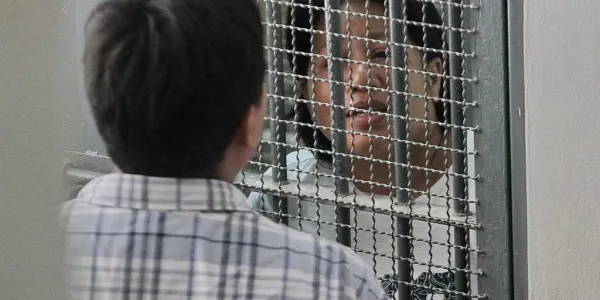By Prachatai |
<p>On 22 December, the Criminal Court found Patnaree Chankij, the mother of pro-democracy activist Sirawith Seritiwat, not guilty of charges under the lèse majesté law and the Computer Crime Act after she responded in a chat with her son’s friend with ‘cha’ (yes).</p>
By Metta Wongwat |
<div>The Thai word “ja” has become popular in Thailand as a criticism of the police, following the arrest of an activist’s mother in early May on a lèse majesté charge. The case against her is seen as politically motivated and has sent Thailand’s human rights record to a new low. No evidence has been unveiled to the public other than the word “ja,” non-committal, colloquial ‘yes’ Thai, she said during a Facebook conversation. Assistant Professor Sawatree Suksri, expert on criminal law from Thammasat University, and core member of Nitirat, explained whether this could really deemed lèse majesté. </div>
<div>
</div>
<p>The Thai military prosecutor has officially indicted the mother of a prominent anti-junta activist under the lèse majesté law. She was later released on half a million baht bail.</p>
<p><a href="http://www.tlhr2014.com/th/?p=1478">Thai Lawyers for Human Rights (TLHR) </a>reported that the military prosecutor on Monday, 1 August 2016, officially indicted Patnaree Chankij, 40, mother of the well-known anti-junta activist Sirawit Serithiwat, under Article 112 of the Criminal Code, the lèse majesté law.</p>

